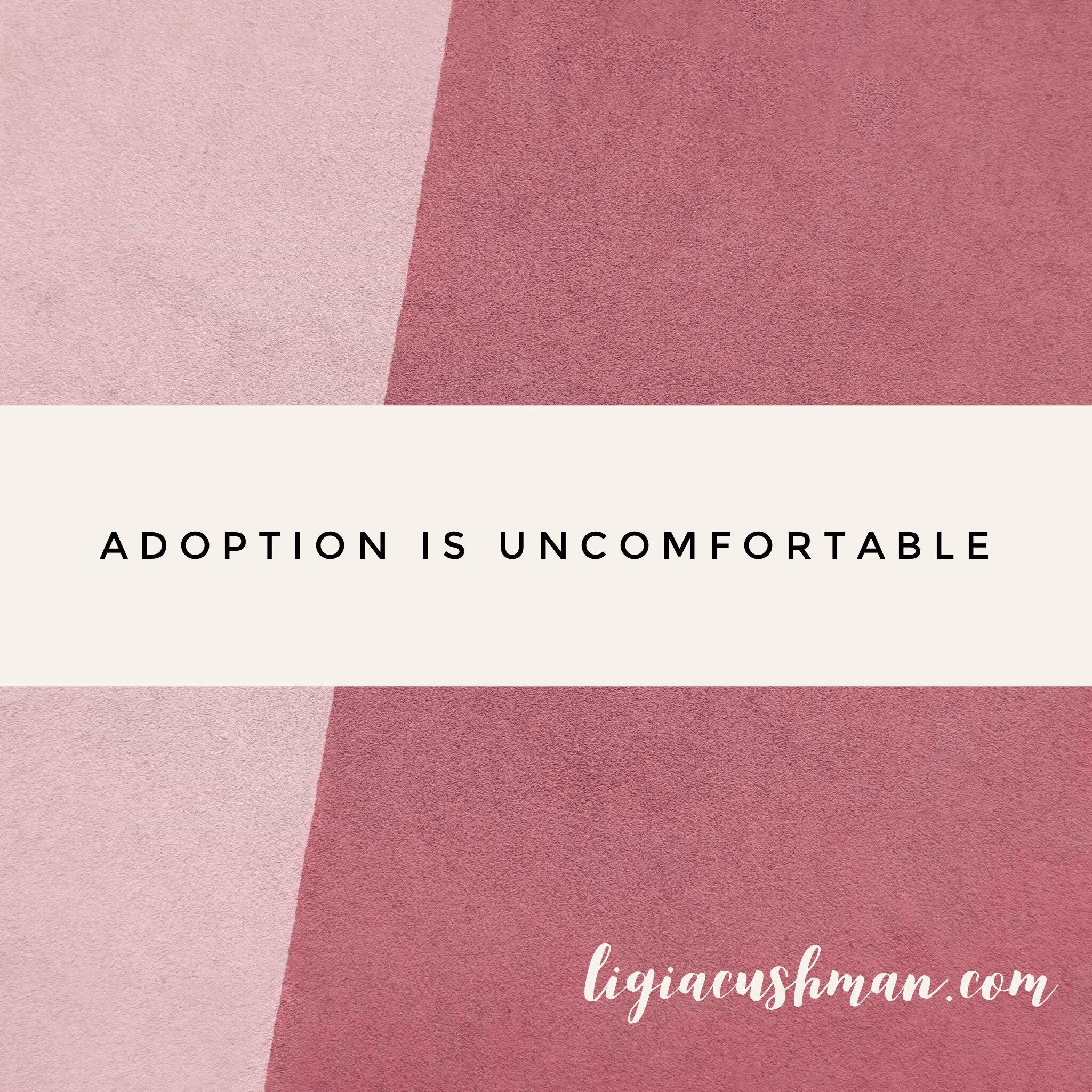I recently read a post where an IG foster/adoptive mom with over 60K followers shared that adoption is redemptive, restorative + relational. As a Christian, I wholeheartedly believe this to be true. That statement also gave me pause. Here’s the thing, when we only state the beautiful aspects that come from adoption, we miss being authentic about what the real experiences of the transracial adoptive family.
It also leaves room for us to develop a savior complex. As adoptive parents, our conversations must be balanced and not about our heroism.
Adoption is also uncomfortable. I wish we would be more transparent about that. Honest about the realities of facing grief, the role race plays in isolating our children, and the complexities of loss for the entire adoption triad (first family, the child, and adoptive family). Uncomfortable for the First Family
It was uncomfortable for our son’s first mom to have me at medical appointments and the delivery room. It’s uncomfortable for her to now have to answer all of his tough questions about how he ended up here. There’s nothing natural about this process. The grace is found in honoring each other.
Uncomfortable for the Adoptive Family
It’s uncomfortable navigating openness in a way that allows our son to build a strong relationship with his first family. I would be lying if I didn’t say I get nervous before every encounter. Shoot, sometimes it’s more than nerves. Sometimes it’s fear.
Relocation definitely adds a layer to intentionality. We had to not only navigate selling our house, packing up our life and starting new jobs and school but, we also had to have goodbye visits with the first family. That was hard. Even now three years later, we have to remind our son that no matter where he lives they are his family.
Uncomfortable for
Our SoN
It’s uncomfortable for our son who has to live with a decision made for him way before he was born and the realities that he didn’t get a say. Although we talk about adoption often with him I know this is an ambiguous loss he will navigate most of his life that I may never fully understand.
Uncomfortable for Adoptive Parents
It’s uncomfortable to understand all the complexities of raising a mixed-race child in the South. As an adoption professional, I believed we “trained” prospective transracial adoptive parents well. Until, I became one myself. Being uncomfortable changed not only how we parented our son but also how I educated, trained and supported new adoptive families.
Adoption changed our life. We adore our son and love that we get to do this crazy life with him. He is why I fight for transracial adoptive parents to do better. I also know adoption changed his life in ways that we could have never anticipated or understand. Like the first time our son was at a family wedding and he asked: “were my (first) parents married?” I stopped what I was doing- taking photos with the bridal party- and made time to answer that really BIG question. You see sometimes the questions come when you least expect it and when you have zero preparation.
Uncomfortable relationships
The adoption of our son taught us a great deal about redemption, restoration, and most importantly its about relationship. Relationships in adoption may look different for every family. For us, that meant being intentional about staying connected with his first mother…no matter what. It also meant having friends that didn’t look like us. It meant we needed to be intentional about how we were raising our mixed-race child. That meant taking him to a black barber in the city. In that space, we not only learned how to care for his hair but we all learned what it meant to be in community. Our uncomfortable life gave us realtionships we couldn’t trade for anything.
The bottom line is that Adoption is at the heart of the gospel and it’s uncomfortable. It can be both. I’ve never grown from anything that didn’t make me uncomfortable...how about you? Navigating our journey of loss and giving each other grace along the uncomfortable spaces is what makes all the difference and its what makes us family.








